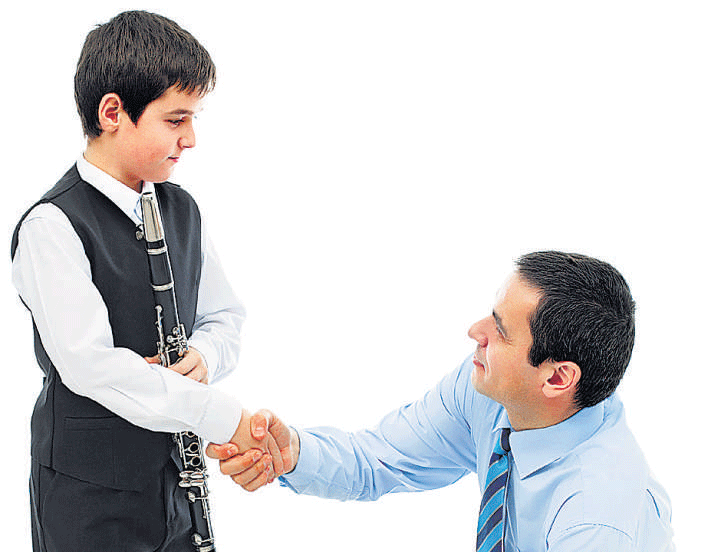When we tell a child “You are a good boy, eat your food’. The child responds by saying “No... I am a bad boy”. Why the denial of praise? In fact, we observe that adults are also not able to accept praise when given. We either shy away from it or feel uncomfortable about accepting a praise. We are working from a belief that we need encouragement and praise to feel good about ourselves and about our work.
We are told again and again that children have to be praised, given positive encouragement so that they can repeat the desired behaviour. But is that really true? Somewhere, we all need the acknowledgement of what we do but what is it about praise that does not allow us to accept it or makes us uncomfortable? Why is it that even though we keep praising our children we do not see the desired behaviour?
Let us check out a few examples of how we “Praise”:
“Fantastic! You are the artist of the house’’
“Great job!”
“Very Good! I am proud of you.’’
“I feel very proud that you are my son.’’
“I like it when you finish your homework before going to play.’’
“I like the way you recited the poem.’’
In all the above examples, you can notice the following :
* There is glorification of the doer
* Expression of an approval
* It is based on the judgement of the person giving the praise
* Does not allow the doer to accept ownership of own achievement
* Invites the doer to “change” in order to be “praised”
These are rather condescending, and would most probably result in children:
* Requiring approval for what they do
* Not allow them to take ownership for their achievement and failure
* Creates dependence on others to motivate them
* Stops them from taking risks and forces them to follow the safe route which gets them the approval
* They feel worthwhile only when others approve
Let us take a familiar example. Children are given smileys or stars at school for the work done. The smiley or star is given based on what the teacher thinks is neat or good. Some children get de-motivated when they are giving their best but the teacher is not able to see it. Children who get the stars would work for the end result of getting the smiley/star instead of focusing on the work. It would worry them if they did not get the stars.
Children who are being praised constantly become dependent on it and are scared to do things differently for the fear of “not getting praise”. The focus is only on the end result and not on the process. We would like our children to be independent and develop as individuals who are self motivated and not dependent on others for approval. We need to challenge the belief that children are looking for encouragement when they are doing something. A baby when born does not bother about what is happening around it. It explores, tries to imitate sounds, touches and senses things without a care in the world.
The adults around it celebrate every new thing it does, thus feeding the baby with external validation of its actions. The appetite grows on what it feeds. The baby grows to be a child who is constantly looking for a favourable response from the adults around it or not feeling good when not getting it.
So what can we do that can encourage our children and at the same time not make them dependent on us? Here’s how:
* Being specific
* Connect with the feelings of the child
* Accept the child’s feelings and thoughts with regard to his work /achievement
* Highlight the strengths used by the child
* Share with the child how it adds value to you
By doing these, one can focus on “how the child or the person feels about his deed” and not on the person giving the acknowledgement/praise. It may seem a little hard at first to do away with extreme validations like ‘Fantastic, Good, Great’ etc., but slowly you will realise that these validations in itself have no meaning either to the doer or to the person giving it.
Let us take an example and see how it works:
A child comes back with his marks (20/20). How do we respond ?
‘Great, I am proud of you’ / ‘Keep it up’ /’ ‘I will be happier if you are able to get such marks in all the subjects’
The better way would be, ‘You seem really happy with your result’/ ‘How are you feeling?’/ What are you thinking when you see your result’/ ‘You must be feeling proud of yourself’/ ‘The way you answered the questions required you to think out of the box.’
This might seem to be a completely new language and it will take a little time to integrate it into our system. But the benefits are huge as it helps in making a genuine connection with the child. It will help the kid to recognise his /her strengths which he/she can fall back on at any point of time in life. It also does not stop the child from exploring and making mistakes for fear of attracting “disapproval”. Most importantly, children grow up as adults who are self-motivated and feel worthwhile without external approval with a healthy confidence and self esteem.
